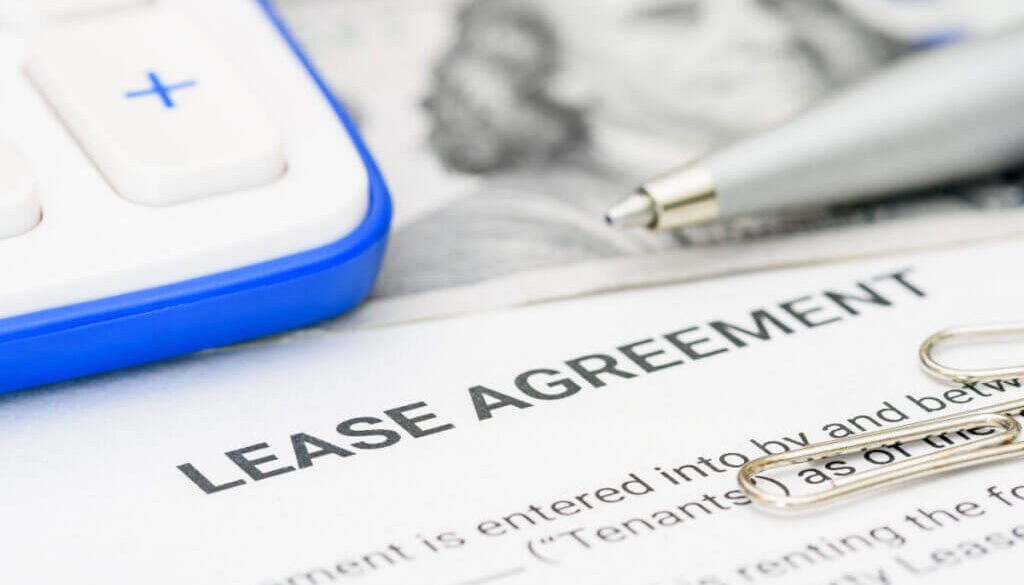If you’re about to sign a commercial lease or even just thinking about renting a space for your business, let’s get one thing straight: this isn’t like renting an apartment or a house. Commercial lease negotiations involve some serious fine print, and if you’re not careful, you could end up locked into a deal that drains your business financially, limits your growth, or lands you in court. Yep, we’re talking about lease law, court headaches, and the kind of commercial business law nightmares that keep business owners up at night.
But don’t freak out just yet. You’re not alone in this, and once you know what to look for, you’ll be way more confident going into those negotiations. Whether you’re setting up a trendy café, opening a new office, launching a retail boutique, or just leasing a warehouse for your online business inventory, every single clause in your lease matters.
To help you avoid the common traps, we’re going to walk through five key clauses in commercial leases that have the power to either protect your business or totally wreck it. We’ll break them down in plain English, keeping the tone friendly, clear, and a little informal (because let’s face it, lease law is heavy enough without all the legalese).
1. The Rent Clause – It’s Not Just the Monthly Number That Matters
Okay, let’s start with the obvious one-rent. But here’s the thing: in commercial lease negotiations, the rent clause isn’t just about how much you’ll pay each month. It’s about how that amount is calculated, what’s included (or not), and whether the rent can suddenly shoot up without much warning.
A lot of commercial leases are structured as triple net leases, which means you’re not only paying base rent, but also contributing to property taxes, building insurance, and maintenance costs. That sweet deal on cheap rent? It might not look so sweet after you see the extra charges for roof repairs, landscaping, or security.
Also, watch out for rent escalations, those little clauses that let your landlord raise the rent yearly or after a fixed period. If your business is still growing, a 10% rent hike could seriously mess with your cash flow.
Tip: Ask for a clear breakdown of all charges. Make sure any escalation clauses have caps. And don’t be afraid to negotiate on things like who pays for major repairs or shared amenities.
2. The Use Clause – The One That Could Trap Your Business
This one sounds simple but can be surprisingly sneaky. The use clause defines how you’re allowed to use the leased space, and if it’s written too narrowly, it can really limit your future.
Let’s say you open a café but later want to add a wine bar, offer live music, or expand into catering. If the use clause just says “coffee shop,” your landlord could shut down those ideas, or worse, use it as grounds to terminate your lease. On the flip side, if your lease says “retail use,” that’s super broad, which can be great, but it might also cause problems if a neighboring tenant has an exclusivity clause that bans competitors.
Tip: Make sure your use clause is broad enough to cover your future plans. If you think you might pivot or add new services, get it in writing. And while you’re at it, double-check if any other tenants have restrictions that could block your business model.
3. The Assignment and Subletting Clause – Your Exit Strategy Hangs on This
Not every business works out exactly as planned and that’s okay. But if you ever need to close shop, relocate, or just downsize, your ability to assign (transfer) or sublet your lease could save you big time. If the lease locks you in without these options, you’re stuck paying rent on a space you’re no longer using.
Let’s say you want to sell your business. If your lease doesn’t let you assign it to the new owner, you might lose the deal. Or maybe you only need half the space now without the ability to sublet, you can’t rent it out to help cover costs.
Some landlords want final say in who takes over, which makes sense. But if the clause gives them unlimited power to reject any new tenant, you’re not really in control of your business’s future.
Tip: Ask for the right to assign or sublet with the landlord’s reasonable consent. That word “reasonable” matters a lot, it’s a legal signal that they can’t just say “no” without good reason.
4. The Repair and Maintenance Clause – Who’s Paying When Things Break?
Imagine you’re running a retail store and one day, the HVAC system dies in the middle of a heatwave. Now you’ve got sweaty customers, melting inventory, and an urgent need for repairs. If your lease says you’re responsible for all maintenance and repairs including big-ticket items like plumbing or the roof you’re suddenly out thousands of dollars you didn’t plan for.
This is a big one in commercial lease negotiations, and one that often ends up in court. Commercial business law doesn’t offer tenants the same protections as residential leases, so you have to rely on what’s written in the contract.
Even worse, if the space has hidden problems like mold, structural issues, or faulty wiring you could be on the hook for fixing them unless the lease says otherwise.
Tip: Negotiate for the landlord to handle structural repairs, HVAC, plumbing, and major systems. Get it in writing, and ask for a clause that says the property is delivered in good working condition.
5. The Termination and Renewal Clause – Plan for the End Before You Begin
When you’re first signing a lease, you’re focused on getting in the door, not thinking about how you’ll leave. But commercial lease law favors whoever plans ahead. What happens when your lease ends? Can you renew automatically? Can the landlord refuse to renew and lease your space to a competitor? Can you walk away if your business tanks?
A solid termination clause gives you some flexibility, while a renewal clause can lock in your space for years to come on terms you’ve already agreed to. Without these, you’re vulnerable to being forced out or stuck paying penalties if things go sideways.
Also, think about what happens if the building is sold. Will the new owner honor your lease? Or could they terminate it early?
Tip: Ask for an option to renew with pre-set terms, like rent and duration. Try to include a termination clause that lets you end the lease early for major events (like low sales or bankruptcy), with a reasonable notice period.
Bonus Clause: Force Majeure – What If Something Totally Out of Your Control Happens?
Remember 2020? COVID shut down businesses overnight. Events like natural disasters, pandemics, or government shutdowns can kill your revenue fast. A force majeure clause protects you by letting both parties off the hook in extreme situations.
Without one, you might still be legally required to pay rent even if your business can’t legally operate. That’s not just unfair, it’s potentially disastrous.
Tip: Make sure your lease includes a force majeure clause that covers pandemics, public health emergencies, and government-mandated closures. You never think you’ll need it… until you do.
Let’s Talk Court – When Lease Negotiations Go Legal
Unfortunately, not every commercial lease story ends happily. If you don’t understand what you’re signing or if your landlord acts in bad faith you could end up in court. Commercial lease disputes often come down to what’s written in black and white. Judges don’t care what was said in a phone call or handshake, they care what’s in the contract.
That’s why understanding commercial lease negotiations law is so important. You don’t have to be a lawyer, but you do need to protect yourself. Courts deal with lease law cases all the time involving disputes over late rent, broken repair promises, termination fights, and more. Even a vague clause can cause months of stress, legal bills, and lost business.
If it feels overwhelming, it’s okay to bring in help. A commercial real estate lawyer can review your lease before you sign and point out hidden traps. Yes, there’s a fee but trust me, it’s nothing compared to what you’d pay in court if something goes wrong.
Real-World Example: How One Business Got Burned by the Fine Print
Let’s say you’re opening a wellness studio for yoga classes, massage therapy, and aromatherapy. You find a cute location with great foot traffic and a decent rent. You sign the lease and everything goes fine for six months. Then winter hits… and the heating system fails.
You call the landlord, expecting them to fix it. But surprise, the lease says you’re responsible for all maintenance, including HVAC. Suddenly, you’re looking at a $10,000 bill for a new heating system. You try to negotiate or break the lease but there’s no early termination clause. You’re stuck. And while you’re stuck, your clients are leaving and your business is tanking.
This stuff happens. That’s why knowing the lease inside and out can save you from a disaster down the line.
One Last Thing: Always Know the Hidden Costs
Beyond the obvious stuff rent, repairs, utilities there are other costs hiding in your lease. Some landlords charge “common area maintenance” fees for things like parking lot upkeep, snow removal, or lobby cleaning. Others might sneak in annual audit fees, legal costs, or admin charges.
You wouldn’t buy a product without seeing the full price, right? Same goes for your lease.
Tip: Ask for a full breakdown of every fee. Don’t sign anything until you understand exactly what you’re paying for.
So… What Should You Do?
Honestly? Treat your lease like it’s one of your most important business relationships, because it is. A bad lease can sink even the best business idea, while a smart one can give you the foundation you need to grow.
Before you sign:
- Read everything (even the boring parts).
- Ask questions-even if you feel dumb asking.
- Don’t accept “standard language” without reviewing it.
- Negotiate. You have more power than you think.
- Get legal advice if you’re unsure.
And remember, whether you’re running a law office, a cupcake shop, or even a business like Sanitair Air Duct Cleaning, your commercial lease is more than just paperwork, it’s a blueprint for your future. Treat it like it matters.
Wrapping It All Up
So here’s the bottom line, friend: commercial lease negotiations aren’t something you can just breeze through. Every clause no matter how small can have a huge impact on your business, your wallet, and your peace of mind. Whether it’s rent increases that sneak up on you, strict use clauses that limit your growth, or tricky repair terms that leave you footing a surprise bill, it all comes down to what’s in writing.
The five clauses we’ve talked about rent, use, assignment and subletting, repair and maintenance, and termination/renewal are the heavy hitters. They’re the ones that can either set you up for success or drag you into court battles and financial stress. Knowing how to spot them, question them, and negotiate them is a must if you want to build a business on solid ground.




